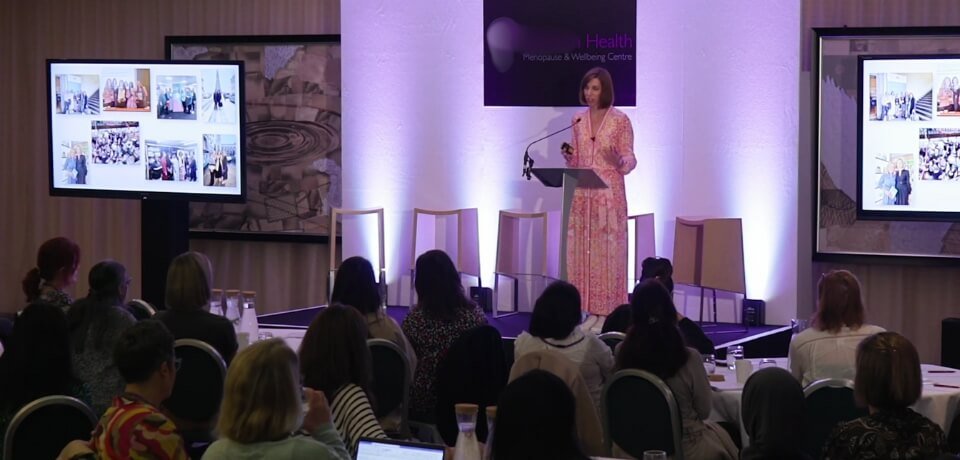Your cart is currently empty!

Healthcare conferences connect professionals from diverse backgrounds to exchange insights, build collaborations, and stay updated on the latest advancements in medical science and technology. These events serve as vital platforms for sharing knowledge and gaining new perspectives on patient care, research innovations, and healthcare policy. Moreover, they create amazing networking opportunities, allowing attendees to connect with peers and industry experts. But what are the main goals of health care conferences?
Primarily, healthcare conferences aim to facilitate networking, share valuable insights, and promote continuous learning. Medical professionals from various backgrounds gather to discuss advancements, challenges, and strategies that impact the sector. This collaborative environment not only improves individual knowledge but also contributes to the overall improvement of health care practices.
For your convenience, we will explore the main goals of health care conferences, exploring their significance in the industry. By the end of this content, you will have a complete knowledge of the objectives that drive these important events.
Healthcare Conferences – What Are They All About?
Healthcare conferences are essential gatherings where professionals from across the medical field converge to share knowledge, discuss advancements, and explore innovative solutions. These events offer an ideal platform for networking, learning, and collaboration, bringing together experts, researchers, and practitioners to address pressing challenges in healthcare.

One of the primary goals of healthcare conferences is to establish a connection between research and practice. Through keynote speeches, panel discussions, and interactive workshops, attendees gain insights into the latest developments and best practices. These conferences also create opportunities for participants to exchange ideas and build partnerships that can result in meaningful change in the industry.
Moreover, the purpose of healthcare conferences extends beyond knowledge sharing; they serve as a platform for professional growth and industry transformation. Attendees leave with enhanced expertise, actionable strategies, and a renewed commitment to improving patient care and outcomes.
What Are the Main Goals of Health Care Conferences?
Health care conferences are essential events designed to bring together professionals from various sectors within the health care industry. The main goals of health care conferences revolve around creating collaboration, sharing knowledge, and promoting innovation.

These events facilitate networking, knowledge sharing, and collaboration, eventually contributing to improved patient care and health outcomes. Here are some of the primary objectives that these conferences aim to achieve.
Facilitating Networking
One of the most important goals of health care conferences is to provide networking opportunities. Professionals from different backgrounds, including clinicians, researchers, administrators, and industry leaders, gather to connect and share experiences. This networking upholds relationships that can lead to collaboration on projects, research, and best practices.
Sharing Knowledge and Best Practices
Health care conferences serve as platforms for sharing the latest research findings, advancements, and best practices in the field. Presenters and keynote speakers often share their insights on emerging trends, innovative treatments, and successful programs. Attendees gain valuable information that they can implement in their practices, enhancing patient care and outcomes.
Continuing Education
Many health care conferences offer continuing education (CE) credits for attendees. This is a crucial goal, as health care professionals are often required to stay current with evolving practices and regulations. Workshops, lectures, and panel discussions provide opportunities for participants to earn credits while learning about new developments in their fields.
Promoting Innovation
Health care conferences are ideal venues for showcasing innovative products, technologies, and solutions. Exhibitors often present their latest offerings, allowing attendees to learn about the latest advancements that can improve efficiency and patient care. By promoting innovation, these conferences contribute to the growth and evolution of the health care sector.
Addressing Current Challenges
The health care industry faces numerous challenges, such as rising costs, regulatory changes, and access to care. Conferences provide a forum for discussing these issues and exploring potential solutions. By bringing together diverse perspectives, attendees can collaborate on strategies to address pressing challenges affecting the industry.
Engaging Stakeholders
Health care conferences provide a platform for engaging various stakeholders, including policymakers, health care providers, and patient advocates. Discussions often focus on health care policies, regulations, and initiatives that impact the sector. Engaging stakeholders helps ensure that multiple viewpoints are considered when addressing issues affecting health care delivery.
Evaluating Outcomes
Another key goal of health care conferences is to consider the outcomes of current practices and initiatives. Through discussions and presentations, attendees can review data, case studies, and research findings that highlight the effectiveness of various approaches. This evaluation process helps identify areas for improvement and encourages evidence-based practices.
Promoting Collaboration
Collaboration is a vital component of the health care industry. Conferences provide opportunities for professionals to work together on research projects, quality improvement initiatives, and policy advocacy. Promoting collaboration leads to a more integrated and cohesive approach to addressing health care challenges.
Networking Opportunities at Health Care Conferences
Health care conferences provide a valuable platform for professionals to connect, collaborate, and share knowledge. These events bring together experts from diverse fields, creating opportunities to exchange ideas and discover innovative solutions. By participating in these conferences, attendees can stay updated on the latest trends and advancements in health care.
Networking at these conferences extends beyond exchanging business cards. It involves meaningful interactions with industry leaders, researchers, and peers, which can lead to future collaborations, mentorships, or partnerships. The diverse range of attendees ensures exposure to different perspectives and practices, enriching professional growth.
Moreover, engaging with peers at such events often leads to important insights on health care conferences, including the best practices and emerging challenges in the field. These connections and shared learnings not only strengthen professional networks but also contribute to personal development and career advancement.
The Role of Innovation in Health Care Conferences
A health care conference’s agenda and discussions are heavily influenced by innovation. These events provide a platform for showcasing the latest advancements, technologies, and practices that drive the industry forward. Here’s how innovation is integrated into health care conferences:
Showcasing New Technologies
Health care conferences often feature exhibitors showcasing the latest technologies and solutions. From telemedicine platforms to advanced medical devices, these innovations demonstrate how technology can improve patient care and streamline processes. Attendees can explore these products and learn how they can be implemented in their practices.
Highlighting Research Findings
Conferences serve as a venue for presenting cutting-edge research in the health care field. Researchers and practitioners share their findings on new treatments, interventions, and methodologies. This dissemination of knowledge encourages collaboration and encourage further innovation within the industry.
Promoting Collaboration
Innovation succeeds in collaboration, and health care conferences facilitate connections between researchers, clinicians, and industry leaders. By bringing together diverse perspectives, conferences promote discussions that can lead to innovative solutions to current challenges. Collaborative initiatives often emerge from these interactions, driving advancements in care delivery.
Encouraging Startups and Entrepreneurs
Many conferences dedicate space to startups and entrepreneurs in the health care sector. These innovators showcase their solutions and business models, often vying for attention from investors and collaborators. This emphasis on entrepreneurship practice a culture of innovation within the industry.
Focus on Patient-Centered Care
Innovations in health care often center around improving patient experiences and outcomes. Conferences promote discussions on patient-centered care approaches, encouraging attendees to implement innovative strategies that prioritize patients’ needs. This focus drives the evolution of care delivery models.
How Do Conferences Contribute to Developing the Health Care Workforce?
The healthcare workforce’s skills and knowledge are advanced through conferences. By bringing together professionals, researchers, and policymakers, these events promote collaboration, innovation, and professional growth. Here are a few reasons why conferences contribute to the development of the health care workforce:

Enhancing Professional Knowledge and Skills
Conferences offer healthcare professionals access to the latest research, practices, and technological advancements in their field. Keynote speeches, workshops, and hands-on sessions equip attendees with practical skills and theoretical insights. These learning opportunities help professionals stay updated and improve care quality.
Promoting Collaboration and Networking
Healthcare conferences connect professionals across various disciplines, encouraging interdisciplinary collaboration. Networking opportunities enable attendees to build relationships with peers, mentors, and industry leaders. These connections often lead to partnerships and knowledge exchange that benefit healthcare systems as a whole.
Addressing Emerging Challenges in Healthcare
Conferences create a platform for discussing pressing issues, such as workforce shortages, patient safety, and the impact of technology. Experts present innovative solutions and strategies to address these challenges effectively. Attendees leave with actionable insights to implement in their organizations, enhancing workforce efficiency and resilience.
Encouraging Lifelong Learning and Professional Development
Participation in conferences inspires healthcare workers to commit to continuous education and growth. Certification programs and continuing education credits offered at conferences motivate professionals to expand their expertise. This culture of lifelong learning ensures the workforce remains adaptable to evolving healthcare demands.
Inspiring Leadership and Innovation
Conferences often highlight success stories and innovations that motivate healthcare professionals to think creatively and lead change. Interactive panels and case studies demonstrate how innovative practices can transform patient outcomes. Exposure to visionary ideas inspires attendees to lead their organizations.
Frequently Asked Questions (FAQs)
This FAQ section addresses common queries related to health care conferences, providing insights into their objectives, benefits, and overall significance. Here, you’ll find clear answers that clarify key aspects of these important industry events.
How Do Health Care Conferences Help?
The main goals of health care conferences include facilitating networking, sharing knowledge and best practices, promoting innovation, and addressing current challenges in the industry. These events aim to enhance collaboration and improve patient care.
How Do Health Care Conferences Contribute to Professional Development?
Health care conferences contribute to professional development by offering continuing education credits, workshops, and presentations on the latest research and best practices. Attendees gain valuable knowledge and skills that they can apply in their work.
Why is Networking Important at Health Care Conferences?
Networking at health care conferences is important because it allows professionals to connect, collaborate, and share experiences. Building relationships with peers and industry leaders can lead to valuable partnerships and opportunities for growth.
How Can Attendees Maximize Their Experience at Health Care Conferences?
Attendees can maximize their experience by actively participating in sessions, engaging with exhibitors, and networking with other professionals. Setting specific goals for what they want to achieve at the conference can also enhance their overall experience.
Final Words
To appreciate the value of health care conferences, one must understand their primary goals. These events serve as platforms for networking, sharing knowledge, promoting innovation, and addressing current challenges. By facilitating collaboration among various stakeholders, health care conferences contribute to the advancement of practices that enhance patient care.
The insights gained from attending health care conferences empower professionals to stay current with trends, improve their skills, and develop connections that drive positive change. As the health care environment continues to change, these conferences play a vital role in the development of the industry.
So, what are the main goals of health care conferences? They are vital for enhancing communication, promoting continuous learning, and encouraging innovation within the health care sector. As you engage in future conferences, keep these goals in mind to maximize your experience and impact.
